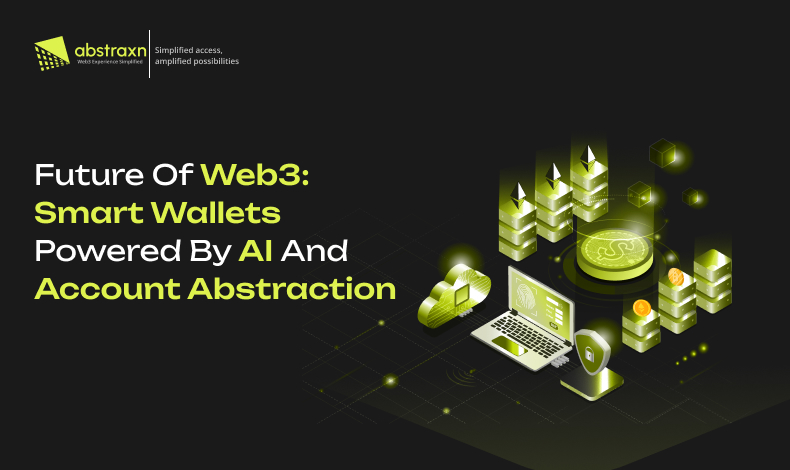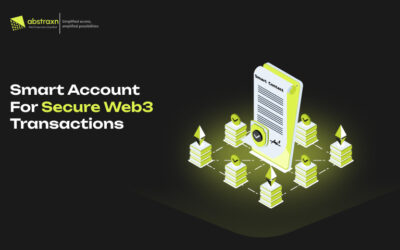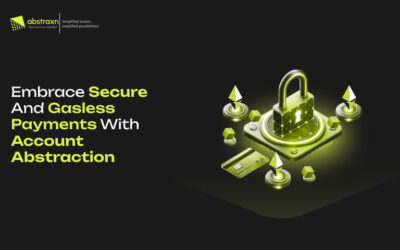The function of wallets will continue to change radically as Web3 evolves. The next generation of wallets, increasingly referred to as smart wallets, is going to be much more than just a repository of digital assets. Reshaped by innovations such as AI (Artificial Intelligence) and account abstraction, wallets will combine automation with enhanced security and user-centric features that elevate the Web3 experience.
This article outlines how AI and account abstraction are setting up the future of smart wallets, and why they are crucial in driving Web3 adoption.
Current Landscape of Web3 Wallets
Web3 wallets have now become the caretakers of an individual’s passage to dApps and into a realm of DeFi. The popular wallets, including MetaMask, Trust Wallet, and Coinbase Wallet, are made for access to the blockchain ecosystem by enabling users to store cryptocurrencies, NFTs, and other forms of digital assets securely. However, these wallets also have their own limitations, such as complicated UI, reliance on private keys, and human error leading to permanent loss of funds.
One of the major complications that has been around these smart digital wallets is a big reason behind the barrier to entry for new users. Dealing with several wallets, keeping private keys safe, and learning how gas fees work can be daunting for non-technical users. With Web3 scaling, there is a bigger need for more intelligent, intuitive wallets.
Smart Wallets: A Sneak Peek into the Future
Smart wallets will change the game by seamlessly integrating leading technology into a secure and user-friendly experience. Smart wallets will now incorporate AI, machine learning, and account abstraction to give more functionality and security. That’s where the smart wallet comes into play: making it all so much easier, automating the transactions, and giving so much better control to the user while keeping security and privacy intact.
Read Also: How Account Abstraction Can Drive Mass Adoption of Blockchain Technology
The Role of AI in Smart Wallets
Artificial Intelligence is going to play a very important role in the future of digital wallets. As long as an AI will process data and learn from user behavior and make decisions on its own, many pain points of a traditional wallet become eradicated. Here is how AI is reshaping the future of Web3 wallets:
- Personalized Recommendations and Automation
- Fraud Detection and Improved Security
- Smart Portfolio Management
- AI-Powered Customer Support
AI-powered smart wallets will analyze user behavior and make customized suggestions, such as recommending the best time for sending a transaction, considering gas fees or the best opportunities for investments above protocols such as DeFi. In addition, AI will automate basic regular transactions such as token staking or the scheduling of repeat payments, further reducing friction from the user’s experience.
Advanced AI algorithms can trace patterns of unusual behavior and flag suspicious transactions, adding an extra layer of security. Since phishing attacks and hacks are getting increasingly sophisticated, AI can help in preventing fraudulent activities, owing to wallet activity monitoring in real-time and sending out warnings to users about potential risks.
Portfolio management of a diverse range of cryptocurrencies, NFTs, and other digital assets can be pretty tricky. Smart digital wallets powered by AI can also act like virtual financial advisors in optimizing portfolio allocation and providing insight into market trends, risk management, and asset diversification to help users make more informed decisions in the management of their assets.
Smart wallets can also implement AI-powered customer support that could guide users through complex tasks, such as recovering access to a wallet, completing a transaction, or resolving technical issues. This would greatly reduce reliance on manual customer service and give users real-time solutions to their problems.
Account Abstraction: The Key to Flexibility and Security
While AI enhances functionality, account abstraction web3 is the backbone that makes these smart wallets operate more efficiently and safely. Traditional Web3 wallets require users to deal directly with their private keys and smart contracts, which is an often cumbersome and risky operation. Account abstraction changes this paradigm because it separates the user’s account from the underlying blockchain infrastructure and allows more flexibility in how it can be customized.
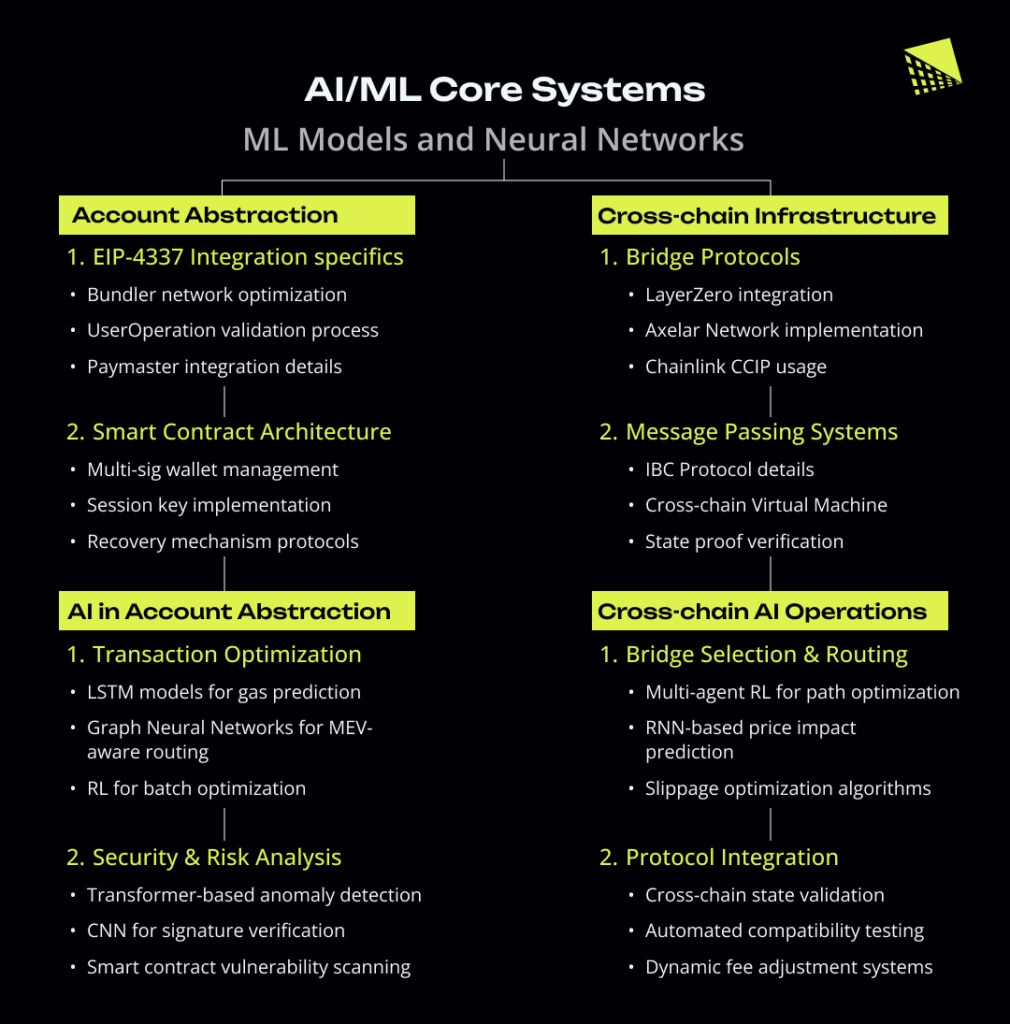
- More about Account Abstraction
Account abstraction enables users to define how their accounts will interact with smart contracts. This decouples the user’s accounts from the account model inherent in the blockchain and thus allows more sophisticated and complex transactions. Users could establish rules for wallet operation, instead of being anchored to a single private key. Multi-factor authentication, transaction limits, or customized gas fee payment methods are some of the possibilities here.
Account abstraction provides smart wallets with the ability to abstract all the technical complications related to interacting with blockchains and, therefore, offer users an easier and at the same time safer experience.
Key Benefits of Account Abstraction in Smart Wallets
- Increased Security
- Customizable Transaction Flow
- Easy Recovery Wallets
- Gas Fee Abstraction
Abstraction in accounts would mean that multi-signature wallets or multi-factor authentications could be set up by users themselves to reduce the risk of one point of failure. This could be a scenario wherein, based on conditions specified by a user, higher value transactions are verified through biometrics or confirmation from multiple devices.
Account abstraction lets users customize their wallet behavior in terms of how it should interact with transactions. This could be batching several actions into a single transaction, or automating some processes, such as paying gas from a separate token balance or having third-party operators handle fee processing.
One of the major pain points in Web3 is recovery. The risk of losing access entirely to a private key and funds can be a significant issue for users. Using account abstraction web3 could allow for much more flexible recovery methods such as social recovery; wallet recovery can be assisted with the help of some previously listed, trusted contacts or devices that would reduce the possibility of permanent loss.
One of the major pain points that Web3 users face relates to the complication of gas fees. By using account abstraction, this task can be simplified because the wallet will be able to perform automatic calculations on behalf of the user in return for the lowest possible fee or even pay the fees with alternative tokens. This would make dApps more end-user-friendly.
Read Also: Passkeys and Account Abstraction: Forging the Future of Crypto Wallets
The Synergy of AI and Account Abstraction in Smart Wallets
Smart wallets become incomparably more powerful and intuitive once combined with account abstraction. The ability of AI to analyze and automate, combined with the flexibility and security that account abstraction brings, will actually make smart wallets even safer and more convenient.
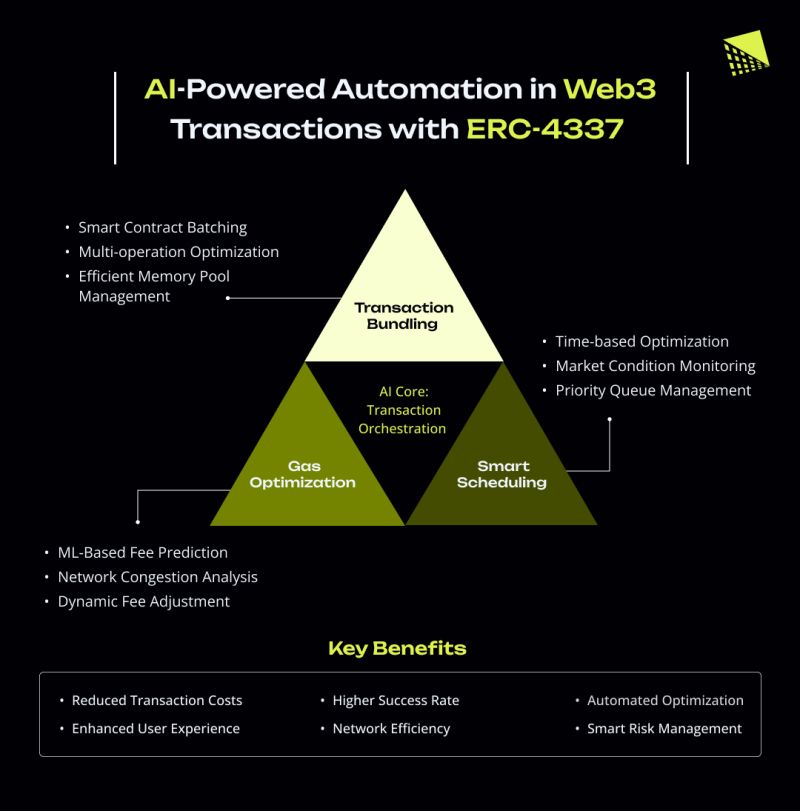
The following represents how these technologies work in concert in enhancing the Web3 experience:
- Automated Security Protocols
- Seamless User Experience
- Improved Privacy
- Ease in Asset Management
AI will automatically trigger previously set securities through account abstraction, monitored for unusual activity, such as wallet freezing after it has detected unusual transactions or requiring additional authentications to confirm unusually high-value transfers.
With AI handling routine tasks like transaction timing and optimizing fees, and account abstraction simplifying transaction flows, users can have a seamless user experience. This kind of synergy takes away a lot of the traditional complexity that has dogged Web3 adoption and opens up decentralized finance and dApps to an increasingly wide audience.
Account abstraction web3 enables more features that are more privacy-centric in nature, such as the masking of the origination point of a transaction or smart contracts handling users’ privacy settings. AI can enable even more robust privacy by analyzing and reducing the amount of information a user needs to share in a transaction and keeping personal data in his control.
AI-powered portfolio management will be able to optimize asset allocation in real-time, based on user preference. Such transactions can be effectively and securely executed thanks to account abstraction. Users will be able to create automated rules to buy, sell, or stake assets without having to constantly and actively manage their wallets.
The Road Ahead: Smart Wallets Driving Web3 Adoption
Smart digital wallets will also incorporate AI and account abstraction in the near future. Every one of these inventions make wallets more secure, intuitive, and powerful and take off one of many inhibitors of mainstream mass adoption of the current Web3 technologies.
In the future, smart wallets will pave the way for users through the imposing complexity of DeFi, NFTs, and dApps to open up a much more inclusive and user-friendly blockchain.
The key to unlocking the full potential of Web3 lies at an intersection of AI and account abstraction web3.

